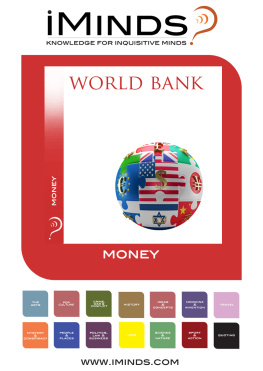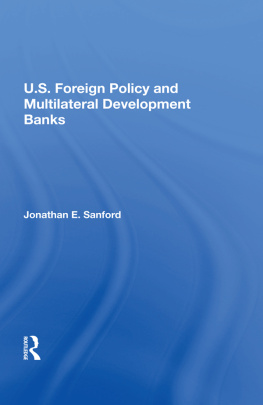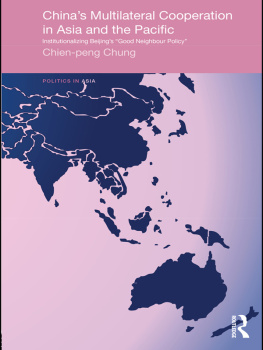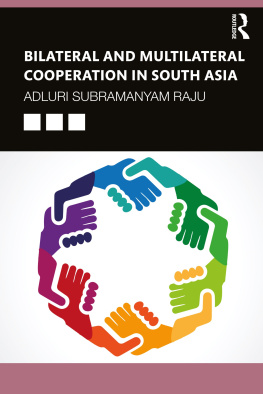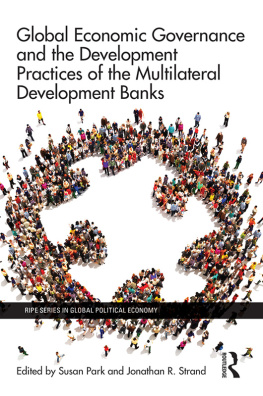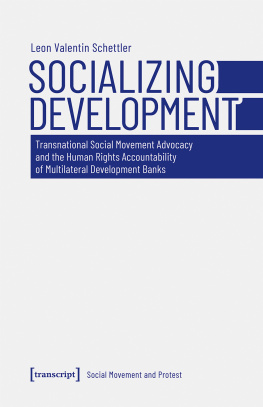The Global Architecture of Multilateral Development Banks
This book explores the evolution of the 30 functioning multilateral development banks (MDBs). MDBs have their roots in the growing system of international finance and multilateral cooperation, with the first recognisable MDB being proposed by Latin America in financial cooperation with the US in the late 1930s. That Inter-American Bank did not eventuate but was a precursor to the World Bank being negotiated at Bretton Woods in 1944. Since then, a complex network of regional, sub-regional, and specialised development banks has progressively emerged across the globe, including two significant recent entrants established by China and the BRICS.
MDBs arrange loans, credits, and guarantees for investment in member states, generally with the stated aim of fostering economic growth. They operate in both the Global North and South, though there are more MDBs focussing on emerging and developing states. While the World Bank and some of the larger regional banks have been scrutinised, little attention has been paid to the smaller banks or the overall system. This book provides the first study of all 30 MDBs and it evaluates their interrelationships. It analyses the emergence of the MDBs in relation to geopolitics, development paradigms, and debt. It includes sections on each of the banks as well as on how MDBs have approached the key sectors of infrastructure, human development, and climate.
This book will be of particular interest to researchers of development finance, global governance, and international political economy.
Adrian Robert Bazbauers is a Lecturer in International Public Sector Management, School of Business, UNSW Canberra, Australia.
Susan Engel is an Associate Professor in Politics and International Studies, University of Wollongong, Australia.
Routledge Explorations in Development Studies
This Development Studies series features innovative and original research at the regional and global scale. It promotes interdisciplinary scholarly works drawing on a wide spectrum of subject areas, in particular politics, health, economics, rural and urban studies, sociology, environment, anthropology, and conflict studies.
Topics of particular interest are globalization; emerging powers; children and youth; cities; education; media and communication; technology development; and climate change.
In terms of theory and method, rather than basing itself on any orthodoxy, the series draws broadly on the tool kit of the social sciences in general, emphasizing comparison, the analysis of the structure and processes, and the application of qualitative and quantitative methods.
Media Power and Hegemony in South Africa
The Myth of Independence
Blessed Ngwenya
Economic Neoliberalism and International Development
Edited by Michael Tribe
Critical Reflections on Public Private Partnerships
Edited by Jasmine Gideon and Elaine Unterhalter
Political Participation and Democratic Capability in Authoritarian States
Lien Pham and Ance Kaleja
The Global Architecture of Multilateral Development Banks
A System of Debt or Development?
Adrian Robert Bazbauers and Susan Engel
For more information about this series, please visit: https://www.routledge.com
First published 2021
by Routledge
2 Park Square, Milton Park, Abingdon, Oxon OX14 4RN
and by Routledge
52 Vanderbilt Avenue, New York, NY 10017
2021 Adrian Robert Bazbauers and Susan Engel
Routledge is an imprint of the Taylor & Francis Group, an informa business
The right of Adrian Robert Bazbauers and Susan Engel to be identified as authors of this work has been asserted by them in accordance with sections 77 and 78 of the Copyright, Designs and Patents Act 1988.
All rights reserved. No part of this book may be reprinted or reproduced or utilised in any form or by any electronic, mechanical, or other means, now known or hereafter invented, including photocopying and recording, or in any information storage or retrieval system, without permission in writing from the publishers.
Trademark notice: Product or corporate names may be trademarks or registered trademarks, and are used only for identification and explanation without intent to infringe.
British Library Cataloguing-in-Publication Data
A catalogue record for this book is available from the British Library
Library of Congress Cataloging-in-Publication Data
Names: Bazbauers, Adrian Robert, author. | Engel, Susan N., author.
Title: The global architecture of multilateral development banks : a system of debt or development? / Adrian Robert Bazbauers and Susan Engel.
Description: Abingdon, Oxon ; New York, NY : Routledge, 2021. |
Series: Routledge explorations in development studies | Includes bibliographical references and index.
Identifiers: LCCN 2020042575 (print) | LCCN 2020042576 (ebook) |
ISBN 9780367440244 (hardback) | ISBN 9781003007128 (ebook)
Subjects: LCSH: Development banks. | International finance.
Classification: LCC HG1975 .B39 2021 (print) |
LCC HG1975 (ebook) | DDC 332.1/53dc23
LC record available at https://lccn.loc.gov/2020042575
LC ebook record available at https://lccn.loc.gov/2020042576
ISBN: 978-0-367-44024-4 (hbk)
ISBN: 978-1-003-00712-8 (ebk)
Typeset in Goudy
by codeMantra
When we started this book, our major motivator was to understand the role of the system of multilateral development banks (MDBs) in promoting both debt and development. Despite the 20078 Global Financial Crisis (GFC), it was clear that debt was again rapidly building in many countries and that the development paradigm was shifting, partly thanks to Chinese influence. While scholars had written about the impact of some of the MDBs, it seemed odd to us that there was no comprehensive picture or analysis of the MDB system; and in this work, we identify 30 of them. Since commencing the book, COVID-19 emerged, which added a whole new level of urgency to our task because multilateral development finance (MDF) is a major source of finance for many Global South countries in their response to the health, social, and economic consequences of the pandemic. Debt build-up was a global concern prior to COVID-19, with the World Bank calling the build-up in emerging markets and developing economies (EMDEs) between 2010 and 2018, the largest, fastest and most broad-based increase in the past half century (Kose et al. 2020, 111). Yet, states around the world, especially the poorest, need additional resources to limit the scale of the pandemics human tragedy.
As the saying goes, we have seen this film before, and we know how it ends with another debt crisis. In just the past four decades, the major crises have been the 1982 Developing World Debt Crisis, 1997 Asian Financial Crisis, and 20078 GFC. Of course, history does not repeat itself and each crisis had specific drivers, features, and triggers but all involved a significant debt build-up, unregulated financial innovations, and a trigger often a banking or financial crisis, though this time it may be a virus.



